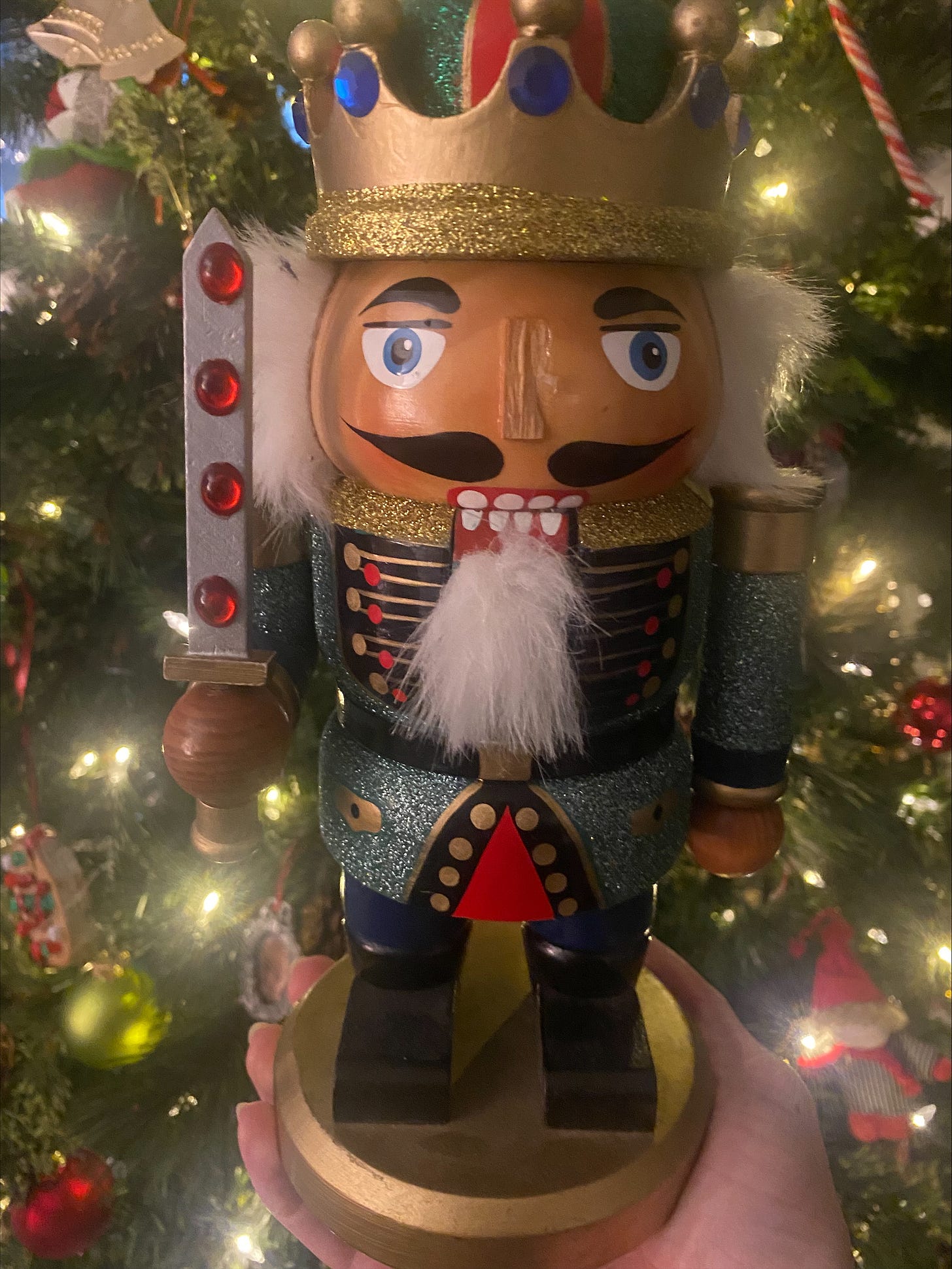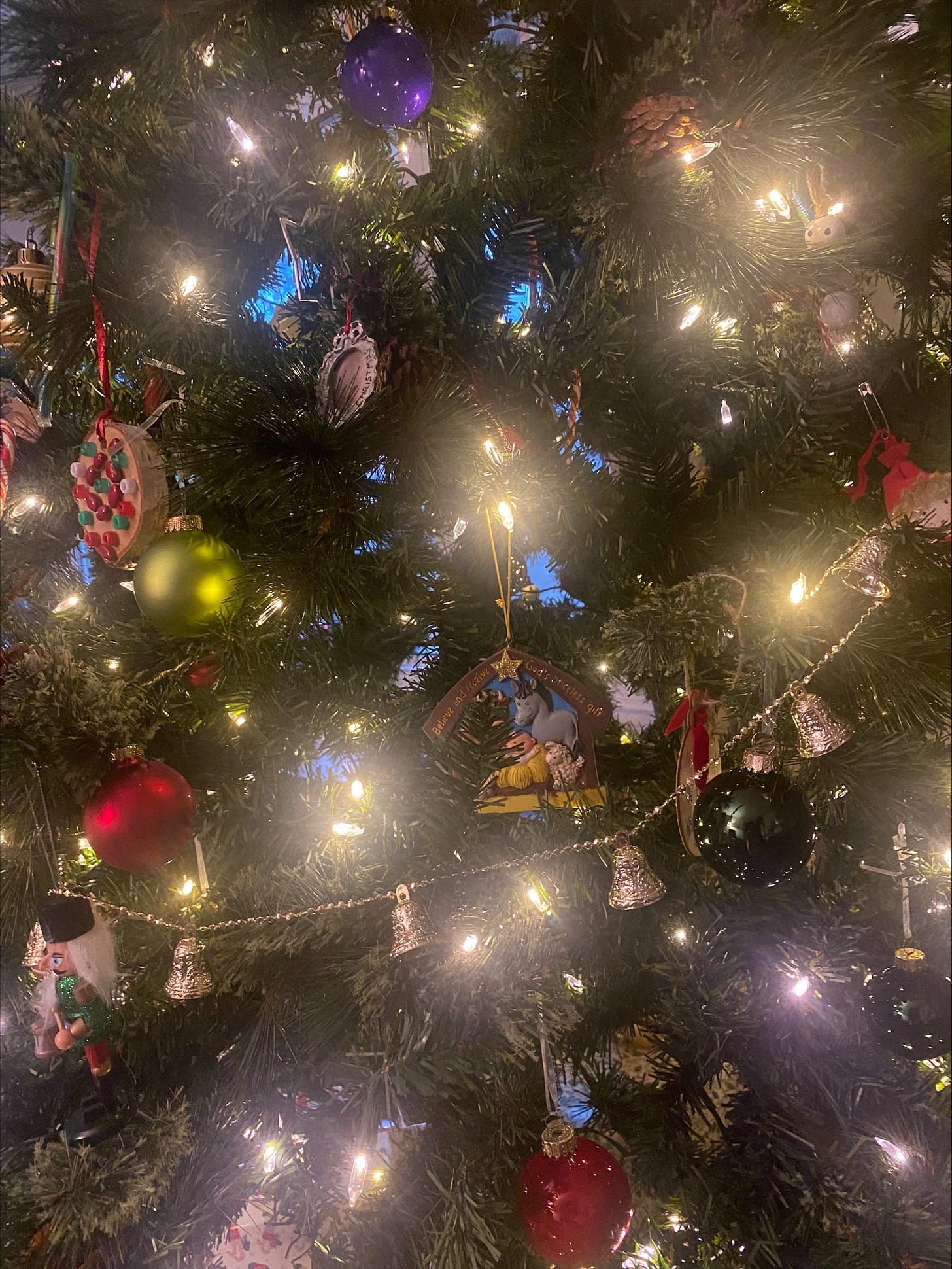If you’ve followed me for a while, you’ll know that I have a tradition of sharing one of my favorite Christmas carols each year around this time, an old Dutch song called “Come and Stand Amazed You People.”
The song is largely unfamiliar to those who didn’t grow up in the Christian Reformed Church singing out of the gray psalter hymnal. Early on, I fell in love with the song. We might only sing it once a year in church—if that—but I played it over and over at home on the piano, pondering its lyrics and committing them to memory.
The hymn draws on Philippians 2:6-8, Luke 2:7, and John 1:5 and 14, and dates back to the seventeenth century. (A modern rendition can be found YouTube.)
Come and stand amazed, you people,
See how God is reconciled!
See his plans of love accomplished,
See his gift, this newborn child.
See the Mighty, weak and tender,
See the Word who now is mute.
See the Sovereign without splendor
See the Fullness destitute.
See how humankind received him;
See him wrapped in swaddling bands,
Who as Lord of all creation
Rules the wind by his commands.
See him lying in a manger
Without sign of reasoning
Word of God to flesh surrendered,
He is wisdom’s crown, our King.
O Lord Jesus, God incarnate,
Who assumed this humble form,
Counsel me and let my wishes
To your perfect will conform.
Light of life, dispel my darkness,
Let your frailty strengthen me;
Let your meekness give me boldness,
Let your burden set me free.
Oh, Emmanuel, my Savior,
Let Your death be life for me!
I’ve always loved the paradox here, the profound truth that is the incarnation: the mighty, weak and tender; the Word who now is mute; a Sovereign without splendor; Fullness destitute.
I also love that people—my people—have sung this across the centuries.
I like to imagine how Dutch folk sang these words around the time the lyrics were first published in 1645. (The words were likely penned not by my Protestant ancestors, but by the persecuted Catholic minority). Perhaps believers, facing the uncertainties of early modern life, found solace in the power of the Almighty: Light of life, dispel my darkness, Let your frailty strengthen me. Life was precarious, but as a nation the Dutch were just then reaching the peak of their imperial power. The Dutch East India Company (and later its counterpart the Dutch West India Company) had established commercial interests across the globe. This tiny nation, barely rising above the sea, had emerged as a world power. I wonder how the lyrics might have been heard in this context.
And then I think of the words I learned, in English translation. It wasn’t until the late 1960s, less than a decade before I was born, that the song was translated into English by Klaas Hart, a Dutch immigrant to Canada. According to the Psalter Hymnal Handbook, Hart was a pastor in the Netherlands who became active in the Dutch resistance during the Second World War. (His name stands on the “honor roll,” the list of those wanted by the German police.) After the war he served Christian Reformed churches in Ontario, Canada.
As the daughter of a Dutch immigrant who grew up in a Dutch immigrant community in Northwest Iowa, I was familiar with accounts of the Dutch resistance. The stories were told and retold with pride, with a devout, fearless faith taking center stage. We had all read Corrie TenBoom’s The Hiding Place, of course. (I’ll have more to share about this book, by the way, in Live Laugh Love.)
My own professor at Dordt College, James Schaap (who also happens to be a relative of my husband because that’s how things work in Dutch CRC circles), helped write a beautiful book telling of Diet Eman’s daring efforts to save Jews as part of the Christian underground resistance.
Growing up, it seemed as though every family with Dutch ancestry could claim a relative or two who fought in the resistance or risked their lives to hide Jews.
Later, as a professional historian, I started to wonder if some of these claims might be embellished. Some undoubtedly were, but while touring the United States Holocaust Museum, I was heartened to see that the Dutch had the longest list of “Righteous Among the Nations”—those who risked their own lives to protect Jews during the Holocaust.
Shaped by these stories of Dutch Christian heroism, I grew up believing that Christianity was a countercultural force for good, the source of strength in the face of tyranny.
There is truth here, but it doesn’t capture the whole story. Because, of course, the vast majority of German Nazis were Christians as well.
Were the Dutch simply better Christians? More courageous? Did they have a better theology?
Perhaps.
But what really distinguished Dutch and German Christians seems to center around the question of Christian nationalism. For Germans, their faith was thoroughly intertwined with their nationalist impulses. Like the Dutch, many Germans were devout Christians, but their faith fueled unimaginable atrocities committed against those deemed outside the fold. For many Dutch Christians, their faith was also intertwined with nationalism. But under Nazi occupation, Dutch nationalism stood in opposition to the Nazi horror.
Reflecting on this history, I’m left pondering what sort of faith equips one to speak a prophetic voice, a voice that can cut through nationalism, particularly when nationalism is turned to unchristian ends?
What Christianity can strengthen believers to refuse to seek their own interest first, to refuse to place others outside the fold?
Perhaps the words of this ancient song point the way.
Christianity is a faith centered around the incarnation, the greatest paradox. It is about divesting of power, not claiming power. Of emptying oneself. Of sacrificial love.
This Christmas season, may these words be a prayer for all followers of Christ:
O Lord Jesus, God incarnate,
Who assumed this humble form,
Counsel me and let my wishes
To your perfect will conform.
Light of life, dispel my darkness,
Let your frailty strengthen me;
Let your meekness give me boldness,
Let your burden set me free.
Let me close this Christmas post with a word of thanks to all of you. Thank you for your support over the past year, for your words of encouragement, and for the wisdom that you share with me here in this space. In that spirit, I’d love for you to share your own favorite Christmas songs or holiday traditions in the comments below.






Wonderful Kristen! As a fellow CRC refugee and pastor (we are both being pushed out of the CRC for defending same-sex marriage), I love the way you have captured the best of our tradition in this old carol. It also reminds me of Mary’s Magnificat where she see’s the birth of her child as a sign that God has “brought down the powerful from their thrones and lifted up the lowly.” Christianity is not a faith that comforts the powerful; it’s a faith that celebrates the power of love.
I don’t know if I have a favorite but I was struck by this verse of Oh Holy Night recently...
“Truly He taught us to love one another
His law is love and His gospel is peace
Chains shall He break for the slave is our brother
And in His name all oppression shall cease
Sweet hymns of joy in grateful chorus raise we
Let all within us praise His holy name
Christ is the Lord, oh praise His name forever
His power and glory, evermore proclaim
His power and glory, evermore proclaim”